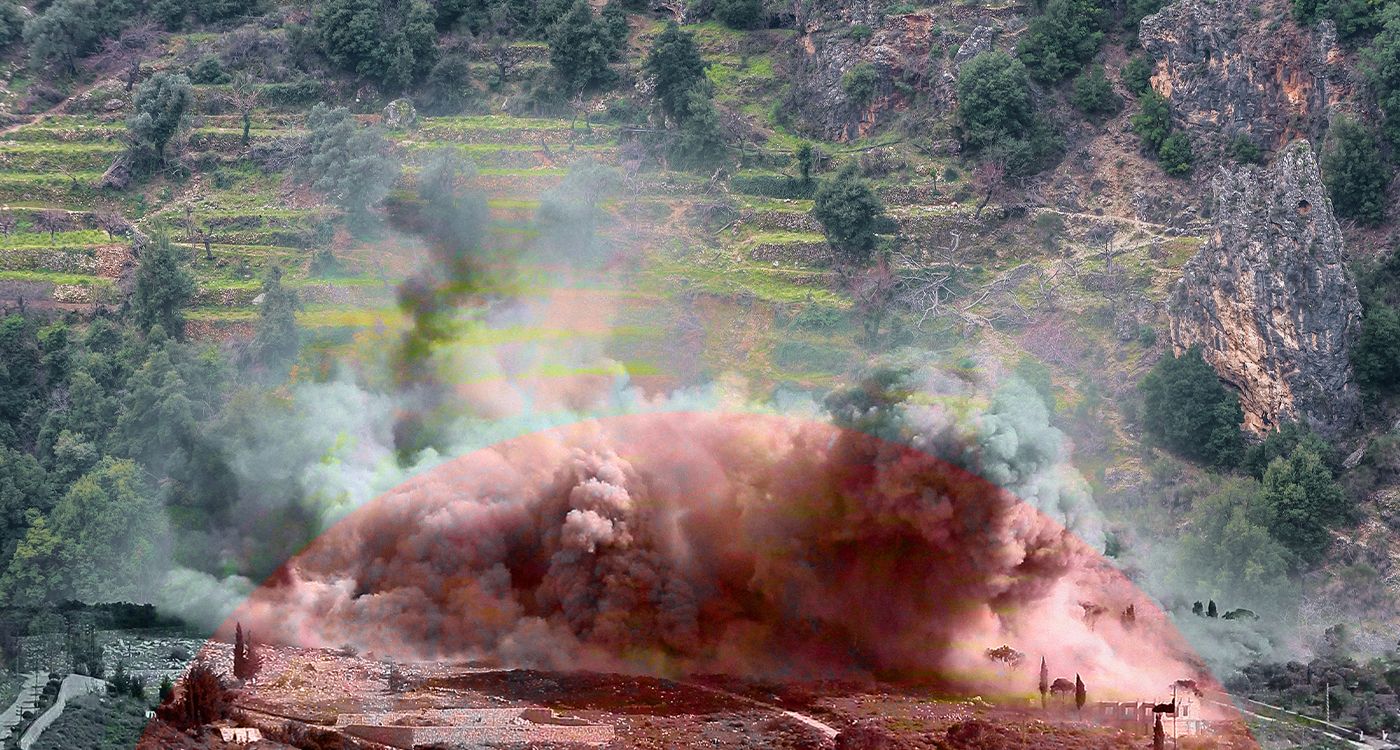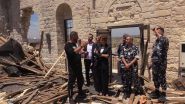
War, with its devastating consequences, not only claims human lives, but also leads to the destruction of essential resources for the population’s survival. In southern Lebanon, the conflict between Israel and Hezbollah has ravaged agricultural lands, threatening the production of citrus, fruits, vegetables and olives – crops that are crucial both economically and nutritionally.
Indeed, the agricultural sector in southern Lebanon has been hit hard by the bombings. This region, which benefits from optimal agro-climatic conditions, is highly productive and serves as the heart of the sector, contributing 80% of the gross domestic product (GDP), with 65% of the southern population working in this area.
As the olive harvesting and oil pressing season approaches, farmers in southern Lebanon are facing massive losses. The south produces 38% of the country’s olives, yielding 5,000 of the 25,000 tons of olive oil produced annually in Lebanon. As a result, the bombings are likely to impact up to a fifth of Lebanon’s olive production revenues, amounting to nearly $23 million. Israeli authorities have advised farmers not to harvest, leading to a halt in both local sales and exports. These are significant and insurmountable losses.
Three main factors have caused the destruction of crops: first, the bombings, which forced people to flee, reducing the available workforce; second, phosphorus bombings that burned part of the harvest; and third, strikes targeting vital irrigation infrastructure. The main watercourse of the Litani River, which supplies irrigation projects, was directly hit. This strategic irrigation draws over 260,000 cubic meters of water daily to irrigate about 6,000 hectares of agricultural land along the southern coast. Following this attack, the Litani River waters were cut off from the region.
A farmer from southern Lebanon reported to This Is Beirut that his losses in olive oil alone amount to around $100,000, while those for citrus and avocados reach $200,000. He explained that the citrus fruits, as well as avocados, bananas, cherimoya and olives, are rotting, even though they are the primary means of livelihood for most southern residents. On a cultivated area of 7,500 hectares, the south alone generates 72% of the sector’s income ($ 16,250,000 out of a total of $22,500,000). The south produces 22% of Lebanon’s fruits and citrus.
Sources from the Ministry of Agriculture indicate that losses in the agricultural sector alone amount to “more than $2 billion,” though they emphasize that this is a theoretical estimate since the war has not ended, and tests on the land have not yet been conducted. This is partly because the white phosphorus used by Israel may have caused even more extensive damage beneath the surface.
What is certain is that the destruction of crops and agricultural land, chemical pollution due to phosphorus bombs, and the impact on livestock and beekeeping pose a serious threat to the local economy. According to the Ministry sources, as of August 27 – after which it became impossible to continue assessments – 96 fires have completely ravaged 7.2 million square meters of forests, farmland, olive groves and other plantations. The numbers are alarming: more than 60,000 olive trees and over 5,000 trees of various species (including oaks and more than 55% of pines) have been destroyed. Furthermore, 35% of fruit trees and 10% of aromatic herbs (such as parsley, mint and coriander) have been damaged.
Tobacco farmers will also be unable to plant this year as they cannot access their fields (the production is around two million kilos of tobacco, which represents 55% of the national production and generates more than $10 million in revenue).
All of these crops generate vital income for the region’s residents, especially those in border villages. Significant financial and technical investments will be needed to restore the region’s full productivity. Farmers will face enormous challenges in rehabilitating their lands and preserving their agricultural heritage.



Comments